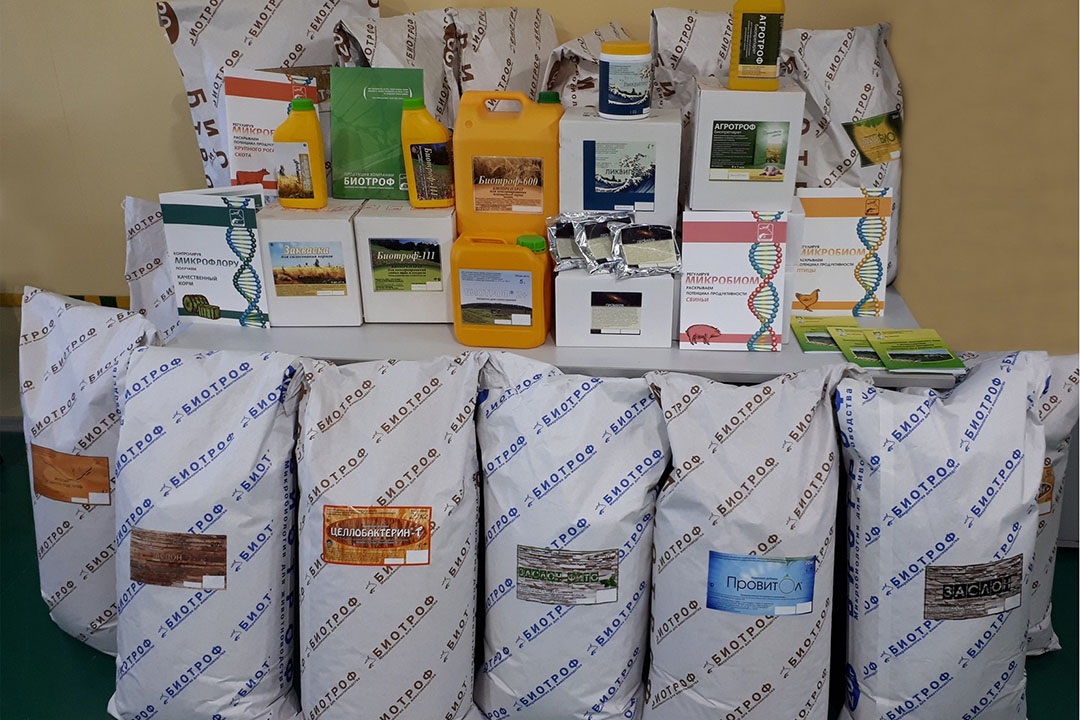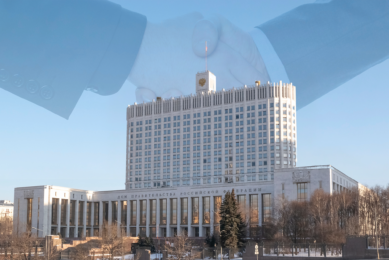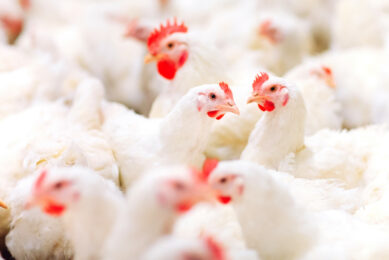Biotrof: Russian feed additives market to grow

The Russian company Biotrof is the first in the country to develop and sell feed additives. We talked to Dr Georgy Laptev, CEO of Biotrof who believes that the animal products, feed and feed additives markets in Russia will develop further in the coming years.
Biotrof is a Russian company that develops, produces and sells a wide range of feed additives and feed conservation products. The company, located in St Petersburg, is highly focused on innovation and looking into new market niches, and with that an important player on the market of feed additives in the Russian Federation and neighbouring countries.
All About Feed (AAF): Can you tell me a bit more about the activities of your company?
Dr Georgy Laptev (GL): “This year, the company was established 20 years ago, which means a celebration this year. The incentive to start the company was that two decades ago, me and my partners came to the conclusion that the Russian agricultural sector was in need of effective and affordable feed additives and preservatives. In the 90s, there were simply no domestic producers of probiotics and silage inoculants, but Russia did import such products. At the time I worked in the All-Russian Research Institute of Agricultural Microbiology, which belonged to the structure of the Russian Academy of Agricultural Sciences. And we worked on interesting bacterial strains and production technologies and realised that it is possible to supply customers with efficient products for reasonable prices. Practically the whole science team we worked with then came from the feed business, and we know that products have to be proven in science before going to market and that they have to be better than their analogues. In 1999, we started Biotrof, and we began to investigate the gut flora of farm animals with new methods of molecular biology. We were the first in Russia who did such studies on real farms, and since then we have seen the sales of our product portfolio increasing as well.”
AAF: Do you work directly with farmers or with feed mills?
GL: “Feed additives with cellulase activities and anti-mycotoxin properties are in big demand in Russia because of the relatively high levels of fibres and mycotoxins in crops. We have put a lot of work and effort in ensuring that our products (probiotics with cellulase activity) are compatible with other components such as acidifiers and essential oils and that our product is thermostable during pelleting. Also important is to make sure that the products can be mixed properly and are not hygroscopic. We work directly with farms (in Russia we mainly call them agricultural producers) and with feed producers, mainly premix producers. Working with both farmers and premix companies have its advantages and disadvantages. When working with the farmers (end users) we can better control the product efficiency and profitability. When working with feed mills (premix companies) we have to share our profits and sometimes we do not know who the final users of our products are.”
AAF: How big is the feed additive market in Russia and neighbouring countries?
GL: “Russia is and will remain a big grain producing country. This means that animal production is also big in this country. But the feed additives market doesn’t grow automatically with it. Russia has successfully increased its poultry and pig production, but it was not accompanied with respective growth of the production of amino acids, vitamins, enzymes etc. As a result, we face growing competition with European and Chinese producers of such feed additives. Of course, Russian farmers trust the high quality of European products, but domestic products are more affordable. If the domestic feed additives can deliver the same performance as the European ones. Russian customers often prefer domestic products. At the same time, the use of feed additives is growing, due to the antibiotic reduction programmes. But while European countries already have years of experience in phasing out in-feed antibiotics, Russia is only at the beginning. Russian producers understand the need to reduce antibiotics and see the benefits of producing antibiotic free (which is also reflected in higher prices for their products), but are also afraid that it can possibly lead to an increased use of medicinal antibiotics. Rosselkhoznadsor (the Russian Agriculture Inspection) monitors the use of antibiotics and has set up a database of the cases of antibiotic residue detection in animal products. Naturally, the producers, who have been convicted of the application of antibiotics will have restrictions in sales of their products.”

AAF: “Are the Russian livestock sectors doing well?”
GL: “To be frank, Russian farmers face many difficulties. If I would list them, it would be a long story. One of the main problems is expensive grains. This is directly reflected in the price of compound feed. But the problem is that farmers cannot easily increase the prices of the meat and eggs. In some cases, this has resulted in bankruptcy of big poultry enterprises. There are also some problems with legislation. Besides the legislative acts of Russian Federation there are also acts and standards of the Customs Union. The problem is that there are sometimes differences between them, which leads to confusion. Not too long ago, President Vladimir Putin emphasised that the outdated and inefficient legislative acts need to be abolished. Another important issue is finding good personnel to work in agriculture.”
AAF: ” What is your five year outlook for Biotrof and where do you want to put more focus on?
GL: “Unfortunately the current political situation is hardly predictable. The sanctions against Russia can be reinforced as well as weakened. By the way, a sanction reinforcement would lead to the weakening of the Russian currency (the Rouble) and restrict imports and stimulation of domestic production. On the other hand, if imported vitamins and some other substances will be not affordable, it will negatively affect the whole feed production sector. Of course, I would prefer a stable, progressive development. Within our company we move forward into research, development and production of those feed additives, thus reducing the need for in-feed antibiotics. In the Russian Federation, our company was the first to apply molecular-genetic methods of gut microflora analysis. Due to this we know better, than others, why and how certain additives can have an effect on the microbiome. And we will do our best to develop, produce and sell novel efficient feed additives for affordable prices in Russia and abroad. In the last five years, the sales of Biotrof has increased with 55%. I think we can grow even bigger than this in the future.”











